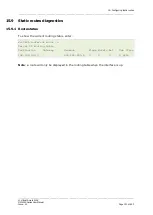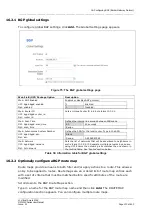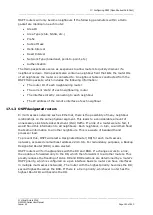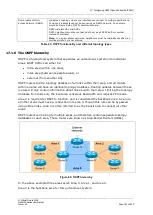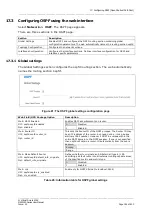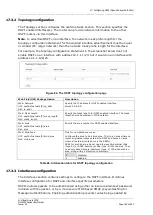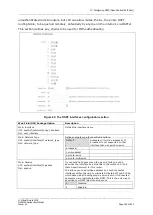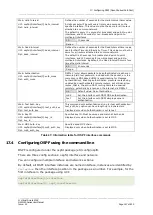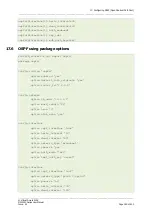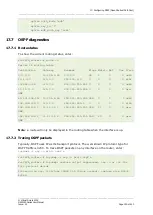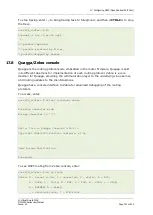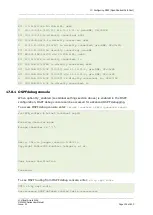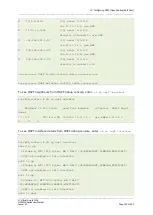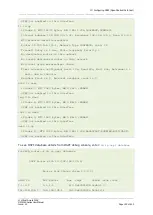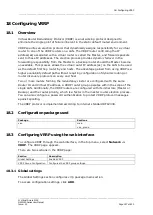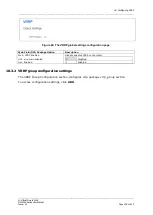
17: Configuring OSPF (Open Shortest Path First)
_______________________________________________________________________________________________________
_______________________________________________________________________________________________________
© Virtual Access 2018
GW2020 Series User Manual
Issue: 2.1
Page 144 of 423
17.3
Configuring OSPF using the web interface
Select Network -> OSPF. The OSPF page appears.
There are three sections in the OSPF page:
Section
Description
Global Settings
Enables OSPF and configures the OSPF routing section containing global
configuration parameters. The web automatically names the routing section ospfd
Topology Configuration
Configures the network sections.
Interfaces Configuration
Configures the interface sections. Defines interface configuration for OSPF and
interface specific parameters
17.3.1
Global settings
The Global Settings section configures the ospfd routing section. The web automatically
names the routing section ‘ospfd’.
Figure 81: The OSPF global settings configuration page
Web Field/UCI/Package Option
Description
Web: OSPF Enabled
UCI: ospfd.ospfd.enabled
Opt: enabled
Enables OSPF advertisements on router.
0
Disabled.
1
Enabled.
Web: Router ID
UCI: ospfd.ospfd.router_id
Opt: router_id
This sets the Router ID of the OSPF process. The Router ID may
be an IP address of the router, but need not be - it can be any
arbitrary 32bit number. However it MUST be unique within the
entire OSPF domain to the OSPF speaker. If one is not specified,
then ospfd will obtain a router-ID automatically from the zebra
daemon.
Empty
Range
Web: Make Default Router
UCI: ospfd.ospfd.default_info_originate
Opt: default_info_originate
Defines whether to originate an AS-External (type-5) LSA
describing a default route into all external-routing capable areas,
of the specified metric and metric type.
0
Disabled.
1
Enabled.
Web: n/a
UCI: ospfd.ospfd.vty_enabled
Opt: vty_enabled
Enable vty for OSPFd (telnet to localhost:2604)
Table 45: Information table for OSPF global settings


